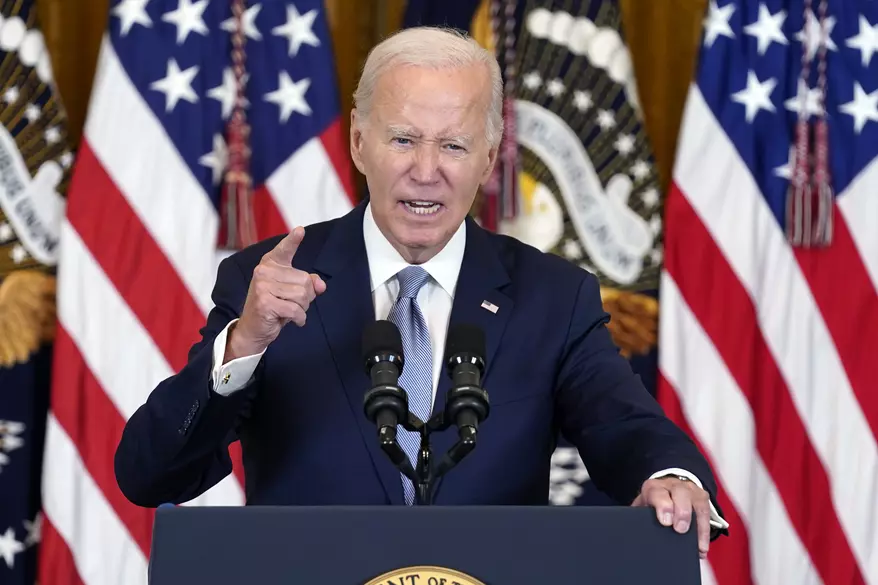Biden’s Move to Lower Prescription Drug Prices Will Backfire
Featured Photo Credit: AP Photo/Evan Vucci
Click here to read this Op-Ed on washingtontimes.com
This past Tuesday, Aug. 29, the White House celebrated a historic moment in the history of Medicare. Historic, yes. But worthy of celebration? Absolutely not.
This celebration was of the naming of the first 10 drugs that will be subjected to the Inflation Reduction Act’s price negotiation program, a policy championed by Democrats and pointed to as a step that would improve our health care.
Sadly, this program will have the opposite effect. It will reduce treatment options for older adults on Medicare and plunge America’s ability to discover new cures into the darkness.
I wish this were hyperbole, but with the mountains of evidence produced since the signing of the Inflation Reduction Act last summer, it should be obvious to any nonpartisan observer. “Price negotiation” policies will give the government the power to hammer down an arbitrary price for a drug onto manufacturers, negating the realities on the ground and ignoring the painstaking process it takes for a drug to be developed.
In the end, it won’t be the drug companies that are hurt the most by this policy. It will be the older Americans on Medicare that will be hit hardest.
Our leaders in Washington need to take a deeper look at the ways that the American drug market works before throwing the IRA’s wrench of a plan into it.
It’s simple: Researching and developing a drug can cost billions of dollars. The process is fraught with trial and error, with fine-tuning and sometimes yielding no results.
Those medicines and therapies that make it through, however, are undoubtedly priceless to patients on the receiving end.
If the government feels the need to insert itself into the market through a price-setting exercise, the resources at the disposal of developing scientists will be significantly scaled back as a result. That means fewer new treatments, and thousands of older Americans who are waiting for better options or a cure will be forced to wait longer.
This becomes especially true for older adults with rare diseases and conditions since the incentives to create new treatments that combat rare diseases will, unfortunately, be outweighed by costs.
Regardless of these unfortunate facts, the Centers for Medicare & Medicaid Services seems content to charge ahead with this ill-fated approach to lower drug costs.
Perhaps it’s become politically expedient to lay the blame for high drug prices at the feet of their creators, but doing so leaves the picture incomplete. Instead of tying the wrists of the scientists who work to improve and save the lives of millions, Washington ought to zoom out and look at the other variables in play.
For example, pharmacy benefit managers, known as PBMs, an industry that is completely unknown to the average person, have an outside role in how drug costs are inflated. Essentially middlemen between manufacturers, pharmacies and insurers, PBMs are given incentives to raise the cost of a drug before it makes it into the pill bottle.
Three PBMs control roughly 80% of drugs sold in the U.S., creating a vertically integrated distribution system that enables higher prices. If we were serious about reducing drug costs without ruining patient access and innovation, restructuring the incentives in PBM business models should be an obvious start.
As president and CEO of RetireSafe, what concerns me the most about American health care is how poorly our nation’s leaders frame the problems in the system. Solutions are too often narrow-minded and ignore the implications they would have on connecting factors.
CMS’ heedless, confusing and flippant attitude about the negative ramifications of the IRA’s price control policies indicates its lack of interest in putting the welfare of older Americans above all else.
We need to reduce the cost of medicine without jeopardizing quality of care, and watching the government cheer a historically atrocious attempt to do so truly puts a knot in the stomach.
Sincerely,








